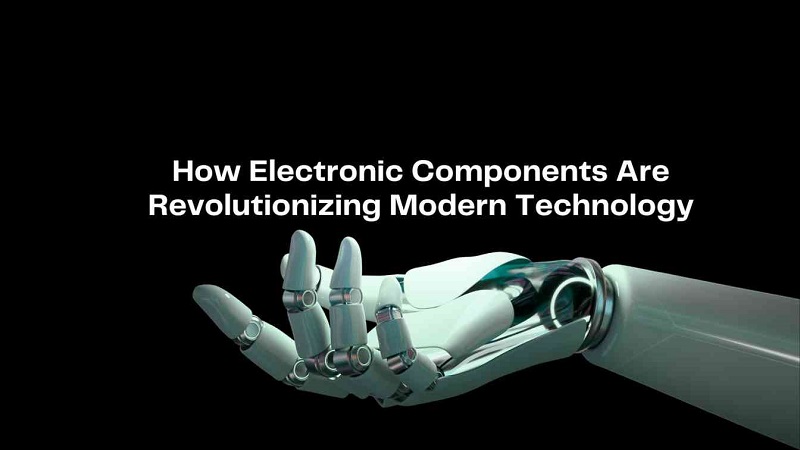How Electronic Components Are Revolutionizing Modern Technology
Have you ever wondered how modern technology works? The answer lies in electronic components. These tiny, yet powerful units are the building blocks of all digital devices and have revolutionized the way we live our lives. From smartphones to computers, from cars to airplanes, electronic components have become an essential part of our daily lives.
But what exactly are electronic components? Simply put, they are basic elements that can manipulate electricity in various ways to perform specific tasks. They range from simple resistors and capacitors to more complex microprocessors and transistors. These components work together in intricate circuits to create the advanced technology that we enjoy today.
In this article, we will explore how electronic components have transformed the world of technology and continue to do so at a rapid pace.

Advancements in Miniaturization
One of the main reasons why electronic components have become such an integral part of modern technology is due to advancements in miniaturization. As technology continues to evolve, there is a constant demand for smaller and more powerful devices. Electronic components have risen to this challenge by becoming smaller and more efficient.
A prime example of this is the development of nanocrystalline cores for transformers. These cores are made up of tiny crystals that are only a few nanometers in size, making them extremely small and lightweight. This allows for the creation of compact and powerful transformers, which are crucial components in many electronic devices, including cell phones and computers.
Increased Speed and Efficiency
Another major impact of electronic components on modern technology is the increased speed and efficiency of devices. This can be attributed to the development of microprocessors, which are integrated circuits that contain millions of transistors on a single chip.
Microprocessors have significantly improved processing speeds, making computers faster and more efficient. This has led to the development of advanced technologies such as artificial intelligence and virtual reality, which require high processing power.
Moreover, electronic components have also made technology more energy-efficient. For instance, low-power LEDs are now used in place of traditional incandescent bulbs, drastically reducing energy consumption and helping to create a greener environment.
Versatility and Flexibility
Electronic components have also made technology more versatile and flexible. With the introduction of programmable devices, such as microcontrollers and FPGAs (Field Programmable Gate Arrays), it is now possible to create complex circuits without the need for physical components.
This has led to the development of smarter devices that can be easily reconfigured and updated with new functionalities. For example, a smartphone can function as a camera, music player, GPS device, and more, thanks to the versatility of electronic components.
IoT – The Future of Electronic Components
The Internet of Things (IoT) is a rapidly growing field that is heavily reliant on electronic components. It refers to the interconnection of everyday devices through the internet, allowing them to communicate with each other and perform tasks without human intervention.
With the increasing demand for interconnected devices, electronic components play a crucial role in making this technology possible. Sensors, microcontrollers, and wireless communication modules are just some of the essential components used in IoT devices.
As the world becomes more connected, electronic components will continue to evolve and drive the development of new technologies that enhance our lives. From smart homes to self-driving cars, the possibilities are endless with electronic components at the core.
In conclusion, it is evident that electronic components have played a critical role in shaping modern technology and will continue to do so in the future. As we move towards an increasingly digital world, these tiny but powerful units will remain at the forefront of technological innovation, driving us toward a more advanced and connected future.
So next time you use your smartphone or turn on your laptop, remember to thank electronic components for making it all possible. Keep exploring and learning about the exciting world of electronic components – who knows what other revolutionary advancements they will bring in the years to come!